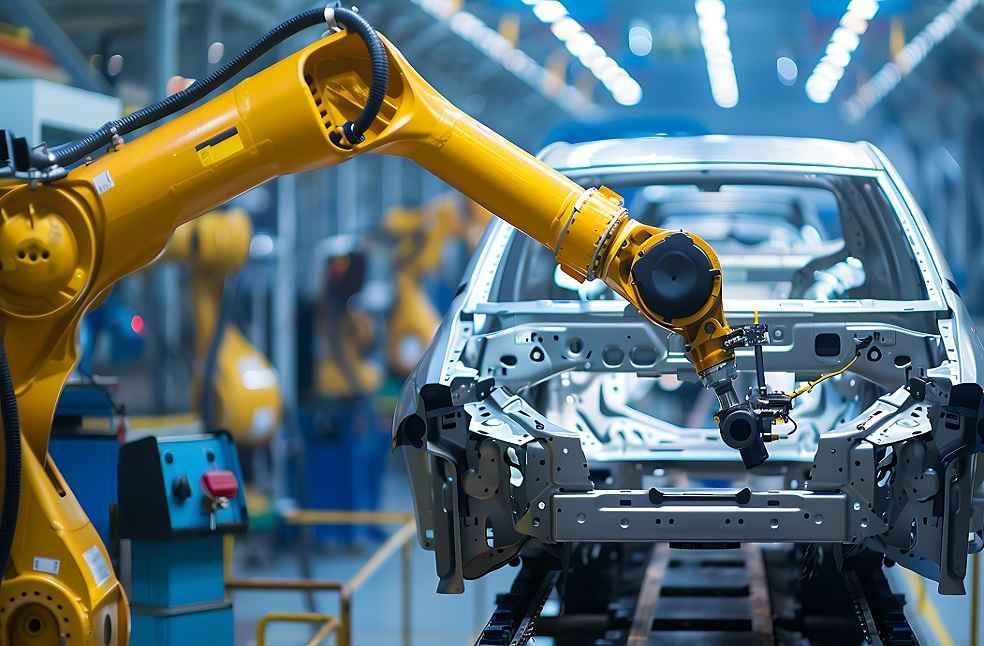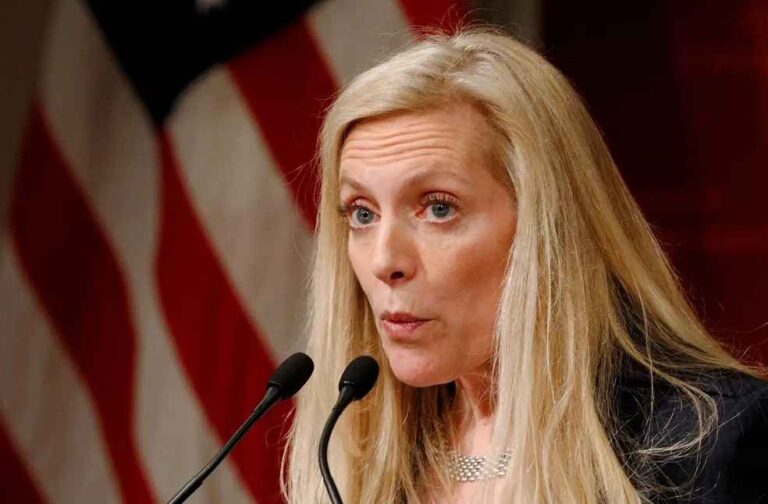The Biden administration has unveiled a decisive plan for fortifying the U.S. auto industry against what it perceives as aggressive trade tactics from China. Addressing the Detroit Economic Club, White House economic adviser Lael Brainard outlined a strategy designed to prevent the looming threat of a ‘second China shock’ — a scenario reminiscent of the economic upheaval caused by China’s rapid industrial ascent in the early 2000s.
“China is flooding global markets with a wave of auto exports on the back of their own overcapacity,” Brainard remarked. “We saw a similar playbook in the China shock of the early 2000s that harmed our manufacturing communities, and this administration is determined we will not see a second China shock.”
Curbing Chinese Influence
The administration’s approach seeks to protect U.S. automakers before Chinese companies can further expand their foothold. Central to this initiative is a proposed ban from the U.S. Commerce Department targeting Chinese software and hardware in connected vehicles, a move seen as critical to addressing national security concerns and preventing technological vulnerabilities. This proposed measure would block nearly all Chinese cars from accessing the U.S. market.

“Americans should drive whatever car they choose – whether gas-powered, hybrid, or electric,” Brainard explained. “But, if they choose to drive an EV, we want to make sure it was made in America, and not in China.”
Election Focus Shifts Toward Auto Policy
The timing of the administration’s policy shift intersects with the 2024 presidential campaign, where U.S. auto policy has become a central theme. Concerns about China’s influence on the automotive sector have garnered bipartisan support, with Republican nominee Donald Trump repeatedly warning of China’s potential dominance in future auto production.
Earlier this month, Biden’s team raised tariffs on Chinese imports, levying a 100% duty on electric vehicles — a move designed to strengthen the defenses of U.S. automakers against China’s state-backed industrial tactics. The administration is also addressing loopholes that could allow Chinese firms to bypass these tariffs by establishing production facilities in Mexico.

frimufilms
Collaboration with North American Allies
Brainard highlighted the critical role of the U.S.-Mexico-Canada Agreement (USMCA) in tackling China’s growing influence. “We’re going to need to work with our partners Canada and Mexico, to address China’s overcapacity in the EVs as we look to the mid-term review of the USMCA in 2026,” she emphasized. Talks with Mexican officials have already commenced, as both nations explore ways to prevent China from using Mexico as a springboard for exporting low-cost vehicles to the U.S.
Guardrails to Protect Domestic Industry
Brainard also touched on the possibility of Chinese automakers setting up U.S. operations, confirming that stringent safeguards are in place to manage such scenarios. The administration is focused on taking a forward-thinking approach, ensuring issues are addressed before they become larger threats to the domestic auto sector.
When asked about criticism from former President Trump, who accused the administration of imposing an ‘EV mandate,’ Brainard shot down the claim, calling it “complete nonsense.” She underscored the importance of investing in electric vehicles to maintain diversity and choice for American consumers.
GENERAL | Chinese Automakers Expand into African Market with Focus on South Africa





